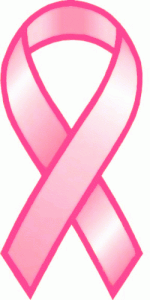 Pamela Ofstein is the Director of Nutrition Services at eDiets.com, a leading provider of weight loss services, information and products.
Pamela Ofstein is the Director of Nutrition Services at eDiets.com, a leading provider of weight loss services, information and products.
Since it is Breast Cancer Awareness Month, there is no better time to look at some of the things we can do to help combat this disease. When we hear the word cancer, most of us stop for a moment and think of someone close to us like a friend, family member, acquaintance, colleague, teacher – or ourselves. Who hasn’t it touched? This disease affects everyone – the individual person and all those who surround them. The people who it has touched, are the strongest women, men and children we know!
Nutrition, lifestyle, and physical activity are all key players when it comes to breast cancer prevention and survival. There isn’t one study or one food that will change everything completely, but possibly the combination of things can help improve the overall quality of life and health.
Here are a few things we can focus on:
Obesity: Paying attention to body weight is important in relation to breast cancer. Women who are overweight or obese have a greater risk of developing breast cancer. In post-menopausal women, fat tissue produces a small amount of estrogen. Having more fat tissue after menopause can increase your estrogen levels thus increasing breast cancer risk that is why physical activity is so important.
Exercise is not only an important part of prevention, but for recovery. Studies show that women can help lower the risk of developing breast cancer if they are more physical. Evidence suggests that by increasing physical activity, it reduces breast cancer risk in premenopausal and post menopausal women. Getting yourself moving is important – and don’t forget about your families, friends and children – especially kids. By increasing physical activity during adolescence (moderate and vigorous activity) it decreases the risk of this disease. By exercising, it works to keep hormone levels in check, lowering levels of insulin and helping to limit excess weight and body fat (culprits of breast cancer).
Exercise also plays a role for all you courageous breast cancer survivors. Incorporating a slow, progressive weight-lifting program might help ease symptoms of lymphedema (arm, breast, and chest swelling) by improving the body’s response to infection, trauma, injury, and inflammation. In a recent study published in The New England Journal of Medicine, women who participated in a structured weight-lifting program increased overall strength and reduced symptoms of lymphedema. This begins to highlight the importance of exercise after cancer treatment; along with guidance from an exercise professional and recommendations from a physician (always a key point).
Consumption of fat: Fat, fat, fat. Research shows there is a relationship between high fat diets, specifically high saturated fat, and increased cancer risk. A low-fat diet may decrease the risk of breast cancer recurrence as well. According to the Women’s Intervention Nutrition Study (WINS), it showed that a change in diet (reduction of dietary fat) for postmenopausal women can improve breast cancer outcomes in women who receive treatment for early-stage breast cancer.
A positive attitude and healthy lifestyle can go a long way. We praise and support all you men and women out there who know, love or are someone fighting this courageous battle. Each day our support gets us one step closer in finding a cure.
See our eDiets review or learn more healthy snacking and living better from the experts at eDiets.com.
___________________________________________________
Guest Blog Series: Look for the following badge on your favorite health sites to see if they have been a featured guest blogger on DietsInReview.com. See other posts in the Guest Blog series.
If you would like to apply to be featured as a guest blogger, please contact us.

